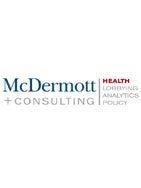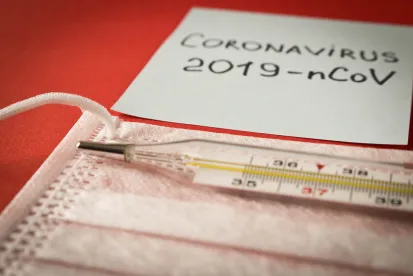This Week’s Dose
The coronavirus (COVID-19) pandemic continues to drive activity in Washington, DC. This week, Congress passed the Coronavirus Aid, Relief, and Economic Security (CARES) Act, the third relief and support bill in response to the pandemic. Read our in-depth summary of the CARES Act here, or listen to our overview on the latest episode of the Health Policy Breakroom.
Congress
Congress Passed “Phase Three” Economic Stimulus Package. After a marathon week of negotiations, lawmakers reached a deal on a nearly $2 trillion emergency relief package in response to the COVID-19 pandemic, the largest stimulus bill in US history by a lot. The CARES Act (H.R. 748) passed the Senate by a vote of 96 to 0 and the House by voice vote. President Trump is expected to sign the bill. The sweeping legislation directs $100 billion to an emergency fund for eligible healthcare providers and provides additional low-interest and small business loan support to businesses combatting the COVID-19 outbreak. Other key provisions boost Medicare and Medicaid reimbursement for COVID-19-related inpatient services and generally, expand testing and treatment coverage, and provide additional regulatory relief for providers.
Our summary of the CARES Act is available here.
Now that the CARES Act has passed, Congress will adjourn in an effort to help protect the health of its members. The Senate has announced a recess until at least April 20, though Majority Leader Mitch McConnell (R-KY) has said he may call the Senate back into session if circumstances warrant. The House has not announced a date for members to return to Washington. When Congress returns will likely depend on whether the rate of infections and damage to the economy continue to worsen. A fourth relief package is already under discussion.
Administration
Administration Issues Guidance for Healthcare Stakeholders. In a letter to all 50 state governors, Department of Health and Human Services (HHS) Secretary Alex Azar urged states to take immediate action to expand telehealth services, including to temporarily waive licensure requirements and some statutory and regulatory standards, relax certain scope of practice requirements, and permit for rapid certification or recertification of healthcare professionals. This is just one of the many new rules, recommendations and tools that HHS and other agencies have issued in an effort to ease regulatory burden during the public health emergency.
A summary of recent CMS activities in response to COVID-19 is available here.
Our running list of COVID-19-related activities across agencies is available here.
Expect the Administration to continue to issue guidance at a rapid pace as the situation develops.
Quick Hits
-
President Trump issued an Executive Order making it a crime to excessively hoard personal protective equipment needed to stop the spread of COVID-19.
-
In light of the COVID-19 outbreak and its impact on the healthcare industry, CMS extended the payer solicitation period for the Primary Care First Model until May 20, 2020.
-
The Food and Drug Administration announced that it will issue COVID-19-related guidance without public notice and comment in an effort to speed the process. However, the agency will accept comments on guidance after it is published and revise as necessary.
-
Several more states received approval of Section 1135 waivers to waive certain Medicaid requirements, including temporarily suspending prior authorization requirements, modifying certain timelines for state fair hearings and appeals and relaxing certain Medicaid provider enrollment requirements during the COVID-19 emergency. Approved 1135 waivers are available here.
Next Week’s Diagnosis
Look out for more in-depth analysis from us on the CARES Act and any future relief bills.




 />i
/>i

